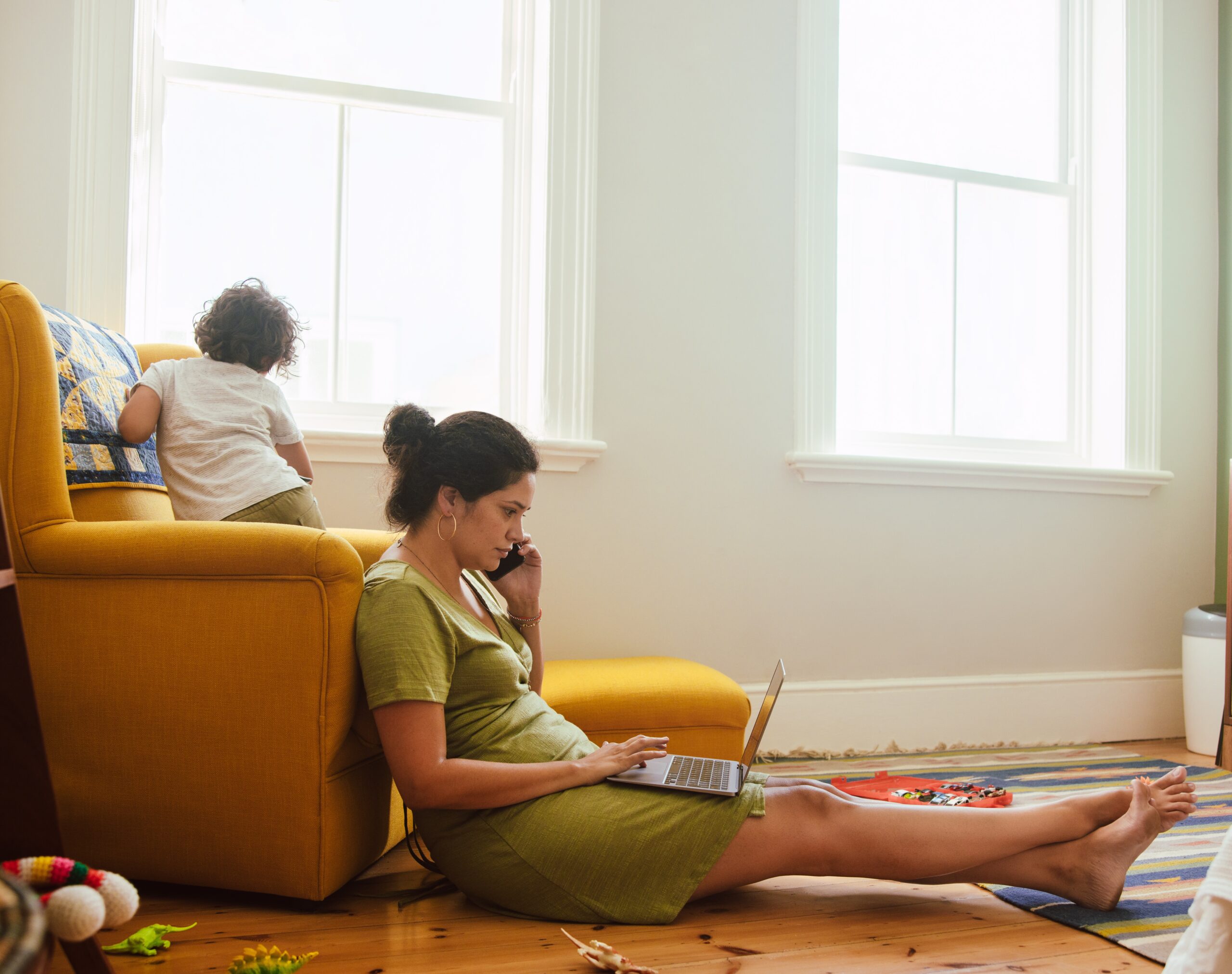Let’s stop lying about how much parents ‘really work’
The viral debate is rage-bait at it’s finest.
Words by Rebecca Holman

If you’re in the mood for a quick rage read this week check out Sam Brodebank’s money column in the Telegraph – which is punchily titled, ‘It’s an open secret that parents don’t work after 3pm.’
In it, Brodebank muses on what a pain in the arse it is trying to book slots at the after-school club at his children’s school on Tuesdays and Thursdays. Mondays and Fridays, he observes, are always free – presumably because these are the days when people are most likely to be working from home and thus feel more able to pick up their kids straight after school.
He uses this searing observation as a jumping off point for his wider theory: that all parents pretty much stop work at 3pm because it’s the only way to make parenting and childcare work, which is why meetings are never scheduled for late afternoon (this is… news to me?). Brodebank claims this is a scourge on productivity, even when parents (he’s very careful to never say ‘mothers’) are logging on after the children have gone to bed to finish their day’s work.
He concedes that ‘In many professions, flexibility does work,’ but also writes that most tasks would be improved by communication and collaboration, ‘not individuals working in silos late into the night when they’re exhausted.’

There is so much to unpack here (just another thing to add to my mental load, thanks Sam), but the thing I would take most umbrage with is his conclusion – that the real losers here are business. Speaking as a parent to young children who is lucky enough to have excellent wraparound care four days a week – which means I don’t have to log off at 3pm to pick anyone up (all those pesky late afternoon meetings get in the way of that), if my husband is away, I still have to start late, finish early and work weird hours just to ensure the bare minimum: that I get enough work done to do my job competently and my young children aren’t left totally unsupervised for 25% of their waking hours.
And on the days when I know I have to fit my work into fewer hours to make pick up, do you know what I do, Sam? I make a (long) list of tasks, I prioritise them, and I work through them as quickly as I can – with minimal dicking around. It means I don’t have time for an expansive chat in the kitchen while I’m making a cup of tea, a nice lunch with a colleague or a cheeky mooch around the shops, but everything gets done.
The loser here isn’t the business I work for. I don’t necessarily think it’s my children who love their childcare and get a huge amount out of it – it’s me. I would love not to have to fill every waking hour of my day with either work or functional childcare, I would love to finish a working week not feeling totally wrecked, and I would love to feel like I have done a good job at something rather than a poor-to-middling job of everything.
‘Can we get a bit more creative about the problem?’
Sam’s solution is this: either a return to pre-pandemic working patterns (which would drive more parents (ahem, mothers) into part time work or economic inactivity and isn’t an option for many households who now rely on two full-time incomes just to pay the mortgage) or ’significantly more state support for parents’ – he’s nonspecific about what that means. And yes, fully funded, high quality wraparound care for every child in every primary school in the UK would go a long way.
But what he’s fundamentally talking about is more bums on seats between the hours of 9-5, rather than an increase in actual productivity. Nor does he account for the fact that some parents might actually want to be able to spend more than two hours a day with their children, five days a week, and finding creative ways for people to do both might make us a happier, healthier, wealthier society.
So how about a bit more creative problem around the problem of working parents can make it work? If we can put a man on the moon, surely, we can solve this riddle? In the same section of the Telegraph this week, there was also an article about the rise five-hour day jobs – i.e. jobs that recruited around the hours 10-3. As well as working parents, these also offer people the opportunity to fit work around caring for elderly parents or a hobby or passion project. The Five Hour Club jobs website even advertises jobs that work around these hours, included a Head Of People and a Co-Head Of Legal Services.
This wouldn’t work for every role, or every person, and wouldn’t be a silver bullet for the thorny issue of how we work like we don’t have children, while parenting like we don’t have a job. But for some people, it might be a game changer.
Photo: Getty

